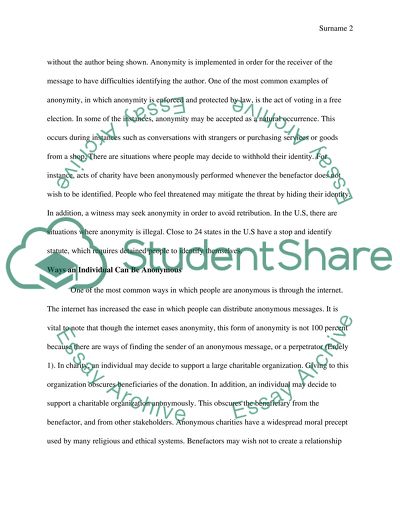Cite this document
(“Anonymity: Morals, Ethics, Responsibilities Essay”, n.d.)
Retrieved from https://studentshare.org/psychology/1653727-anonymity-morals-ethics-responsibilities
Retrieved from https://studentshare.org/psychology/1653727-anonymity-morals-ethics-responsibilities
(Anonymity: Morals, Ethics, Responsibilities Essay)
https://studentshare.org/psychology/1653727-anonymity-morals-ethics-responsibilities.
https://studentshare.org/psychology/1653727-anonymity-morals-ethics-responsibilities.
“Anonymity: Morals, Ethics, Responsibilities Essay”, n.d. https://studentshare.org/psychology/1653727-anonymity-morals-ethics-responsibilities.


